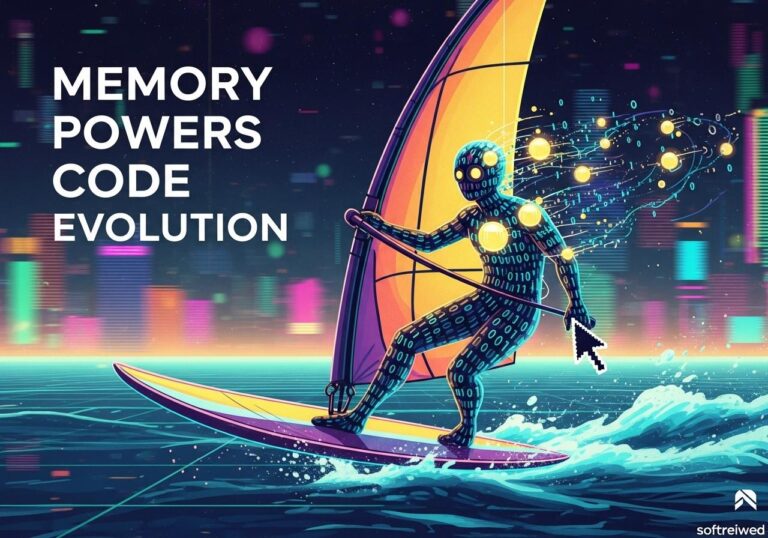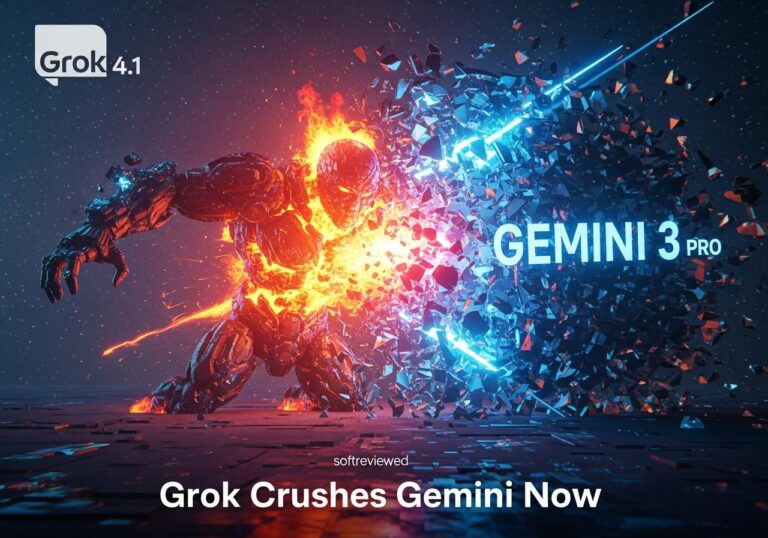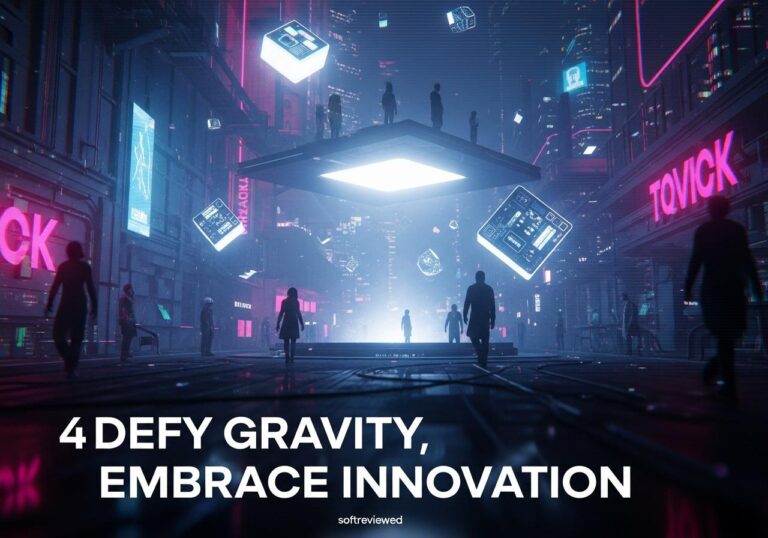Qoder: The Next-Gen AI Coding Assistant
Alibaba’s revolutionary AI coding assistant that transforms software development with advanced intelligence and efficiency
Agentic Intelligence Core
Qoder maintains full project context and reasons about entire codebases, not just snippets. Unlike traditional AI assistants, it builds a comprehensive understanding of your project, enabling true project-wide intelligence and contextual awareness.
10x Development Efficiency
Alibaba claims Qoder can build complete applications “in minutes,” improving coding efficiency by over 10 times compared to traditional methods. This dramatic productivity boost comes from its ability to understand requirements and generate coherent, project-aware code.
Advanced MoE Architecture
Powered by the Qwen3-Coder model with 480 billion total parameters while smartly activating only 35 billion per token for optimal performance. This Mixture of Experts approach delivers powerful capabilities while maintaining computational efficiency.
Memory & Context Features
Includes intelligent codebase search, Repo Wiki, and MCP (Memory Context Processing) tools that retain project memory across sessions. These features ensure Qoder maintains understanding of your project even after you close your session.
Quest Background Processing
A unique feature allowing developers to assign complex coding tasks that run in the background, then review results later. This lets you focus on immediate work while Qoder handles time-consuming tasks in parallel.
Free Preview Phase
Currently available with no rate limits or subscription requirements, positioning as a free alternative to Cursor and Windsurf. Try Qoder now to experience the future of AI-assisted software development without limitations.
Meet Qoder: The AI Coding Assistant That Actually Learns From You
Launched just this week by Alibaba, Qoder represents a significant leap forward in AI-powered development tools. Unlike traditional coding assistants that treat each interaction as a fresh start, Qoder brings something genuinely different to the table: persistent memory, autonomous task execution, and deep codebase understanding that evolves with your projects.
This isn’t another autocomplete tool dressed up with AI marketing. Qoder introduces “agentic coding”—a paradigm where AI doesn’t just suggest code snippets but can independently plan, execute, and complete entire features while you focus on higher-level architecture decisions.
The Technology Behind Enhanced Context Engineering
Traditional AI coding tools suffer from a fundamental limitation: they’re essentially sophisticated autocomplete systems with short-term memory. Each time you start a new coding session, you’re back to square one, explaining your project structure and coding preferences all over again.
Qoder addresses this through what Alibaba calls “Enhanced Context Engineering.” Think of it as giving your AI assistant photographic memory combined with the analytical skills of a senior developer who’s worked on your project for months.
The system builds a comprehensive understanding of your entire codebase—not just the files you’re currently working on, but the architecture, design patterns, dependencies, and even the historical context of why certain decisions were made. This knowledge persists across sessions, growing more sophisticated with each interaction.
The Three Pillars of Qoder’s Approach
Enhanced Context Engineering forms the foundation, combining deep codebase analysis with adaptive memory. The AI maintains context about your project’s architecture, remembers past conversations, and learns your coding patterns over time.
Knowledge Visibility tackles the “invisible” nature of software development. Qoder automatically generates comprehensive documentation of your codebase, creating what they call a “Repo Wiki” that explains architecture and design decisions to both humans and AI.
Spec-Driven Development shifts the developer’s role from executor to intent clarifier. You write detailed specifications, delegate tasks to AI agents, then review and refine the results—a workflow designed for the age of autonomous AI.
Three Modes of AI Collaboration

Ask Mode: Your Coding Mentor
Ask Mode functions like having a senior developer available 24/7 for questions and guidance. You can query anything from “How should I structure this authentication system?” to “What’s the best way to handle error states in this component?” The AI provides detailed explanations without making changes to your code.
Agent Mode: Interactive Pair Programming
This mode enables true collaboration where the AI makes actual changes across multiple files. Tell it to “Add user registration functionality” and it handles everything—database schema updates, API endpoints, frontend forms, validation logic, and testing.
The key difference from other tools is the conversational flow. You maintain control through human-in-the-loop checkpoints, reviewing and approving changes before they’re applied.
Quest Mode: Autonomous Development
Quest Mode represents Qoder’s most ambitious feature. You describe a feature you want built, and Qoder creates a detailed technical specification first. After you review and approve the plan, you can delegate the entire task to AI agents that work asynchronously.
This means you can literally assign work on Friday evening and return Monday morning to completed, tested features ready for review.
Smart Features That Learn and Adapt
Memory System sets Qoder apart from competitors. Most AI tools forget everything between sessions, but Qoder remembers your coding style, project-specific rules, and even past conversations. The more you use it, the more personalized and accurate it becomes.
Repo Wiki automatically creates comprehensive documentation when you open any project. It’s like having an instant project tour guide that explains how everything connects, making onboarding new team members or returning to old projects much faster.
Intelligent Codebase Search lets you find relevant code across thousands of files using natural language. Instead of manually digging through directories, ask “Where do we handle user permissions?” and get exactly what you need.
Next Edit Suggestions predicts what you’ll type next across multiple lines, not just single words. It understands project context and suggests changes that align with your codebase architecture.
MCP Integration connects external tools and services through the Model Context Protocol, extending Qoder’s capabilities to interact with databases, APIs, and other development services.
Getting Started: Installation and Setup
Qoder currently offers completely free access during its preview phase. The installation process is straightforward across all supported platforms.
System Requirements:
- Windows 10/11 (64-bit) or macOS 11.0+ or Linux
- Minimum 4GB RAM (8GB recommended)
- 500MB storage space
- Stable internet connection
Download the appropriate installer from qoder.com/download. The setup takes under five minutes—sign up with Google, GitHub, or email, and you’re immediately ready to code. No configuration required.
Programming Language Support:
Qoder works with all major programming languages, with enhanced capabilities for JavaScript, TypeScript, Python, Go, C/C++, C#, and Java. The AI understands syntax, conventions, and best practices for each language.
Pricing Structure and Credits System
Currently free during the preview phase, Qoder will transition to a credit-based pricing model:
Free Tier: $0/month
- 2-week Pro Trial
- Unlimited code completions and next edits
- Limited credits for chat and agent requests
Pro Plan: Pricing TBD (estimated $19-20/month)
- 2,000 credits for chat and agent requests
- Quest Mode access
- Repo Wiki functionality
Teams Plan: Pricing TBD
- Everything in Pro
- Admin dashboard and SSO support
- Centralized billing
Credits operate on a usage basis—most operations cost 1 credit each, with premium AI models (like Claude Opus) costing 3-5 credits per request. Credits reset monthly based on your first usage date.
Real-World Applications and Use Cases
Legacy Code Modernization: Developers are using Quest Mode to convert entire React class components to functional components with hooks across large codebases, with the AI handling all the interconnected changes automatically.
Feature Development: Teams delegate complete user dashboard implementations to AI agents overnight. The AI handles database design, API development, frontend components, and testing suites.
Documentation Generation: Qoder automatically creates comprehensive API documentation, architecture guides, and onboarding materials that stay current with code changes.
Bug Fixing and Refactoring: The AI can identify and fix errors by understanding project architecture, often catching issues that affect multiple files simultaneously.
Comparing Qoder to Established Tools
| Feature | Qoder | GitHub Copilot | Cursor |
|---|---|---|---|
| Context Awareness | ✅ Full project + memory | ⛔️ Single file focus | ✅ Multi-file awareness |
| Autonomous Execution | ✅ Quest Mode delegation | ⛔️ Suggestions only | 📌 Limited automation |
| Persistent Memory | ✅ Learns your style | ⛔️ No session memory | ⛔️ Limited memory |
| Multi-file Changes | ✅ Coordinated updates | ⛔️ Single file | ✅ Multi-file support |
| Documentation | ✅ Auto-generated wikis | ⛔️ No documentation | ⛔️ No documentation |
| Pricing | ✅ Free (preview) | 📌 $10/month | 📌 $20/month |
GitHub Copilot excels at fast autocomplete for individual files but struggles with larger codebases and multi-file changes. It’s best for quick, production-ready snippets.
Cursor handles large codebases better than Copilot and supports multi-file edits, but lacks persistent memory and autonomous execution capabilities.
Qoder combines the best aspects of both while adding unique features like persistent memory, autonomous task execution, and automatic documentation generation.
Potential Limitations and Considerations
Preview Phase Constraints: Current free access includes monthly credit limits, though exact numbers aren’t specified. Users hitting limits must wait for monthly resets until paid plans launch.
Learning Curve Requirements: Quest Mode requires well-written specifications to produce optimal results. Developers need to invest time learning how to communicate effectively with AI agents.
Internet Dependency: Qoder requires constant internet connectivity for AI processing, making it unsuitable for completely offline development environments.
Large Codebase Performance: Initial indexing can be slower with very large projects as Qoder builds its comprehensive understanding of the codebase architecture.
Framework Limitations: May struggle with very niche or proprietary frameworks that weren’t well-represented in training data.
Security and Privacy Considerations
Qoder implements several security measures, but agentic AI introduces unique risks:
Data Handling: Code context is processed for completions but not stored long-term or used for training other models. Chat logs may be anonymized for algorithm improvement only with explicit user feedback.
Agentic Risks: Autonomous AI agents can potentially make decisions that bypass intended security policies or access systems beyond their intended scope. Organizations should implement proper access controls and monitoring.
Memory Poisoning: The persistent memory system could potentially be compromised by malicious inputs that affect future AI decisions. Regular auditing of AI behavior patterns is recommended. This is particularly concerning in systems utilizing the Claude AI memory feature explained, where toxic inputs might skew the model’s learning and decision-making processes. To mitigate such risks, implementing robust validation protocols and dynamic response tracking is essential. By doing so, we can ensure that the AI remains reliable and aligned with ethical standards.
The Future of Agentic Coding
Qoder represents an early glimpse into a future where developers spend more time on architecture and problem-solving while AI handles implementation details. This shift from “AI-assisted coding” to “AI-delegated coding” could fundamentally change how software development teams operate.
Upcoming Features include flexible credit-based pricing plans, enhanced enterprise features with SSO support and admin dashboards, and continuous integration of the latest AI models from Claude, GPT, and Gemini.
The integration of MCP (Model Context Protocol) positions Qoder to connect with an expanding ecosystem of development tools and services, potentially becoming a central hub for AI-powered development workflows.
Making the Right Choice for Your Development Workflow
Qoder is particularly valuable for developers who are tired of repeatedly explaining their codebase to AI tools and want an assistant that actually learns and grows with their projects. The free preview makes it risk-free to experiment with agentic coding concepts.
Try Qoder if you:
- Work on complex, multi-file projects regularly
- Want AI that remembers your coding style and preferences
- Are interested in delegating entire features to AI agents
- Need better codebase documentation and knowledge transfer
- Want to experiment with autonomous development workflows
Stick with existing tools if you:
- Primarily work on simple, single-file tasks
- Prefer having complete control over every code change
- Need offline development capabilities
- Work with highly specialized or proprietary frameworks
The agentic coding paradigm that Qoder pioneers may well represent the next evolution in software development tools. As AI becomes more capable of independent reasoning and task execution, the developer’s role is shifting toward higher-level design and architectural decisions—and tools like Qoder are leading that transformation.
Visit qoder.com to download and experience the future of AI-assisted development while it’s still completely free.







